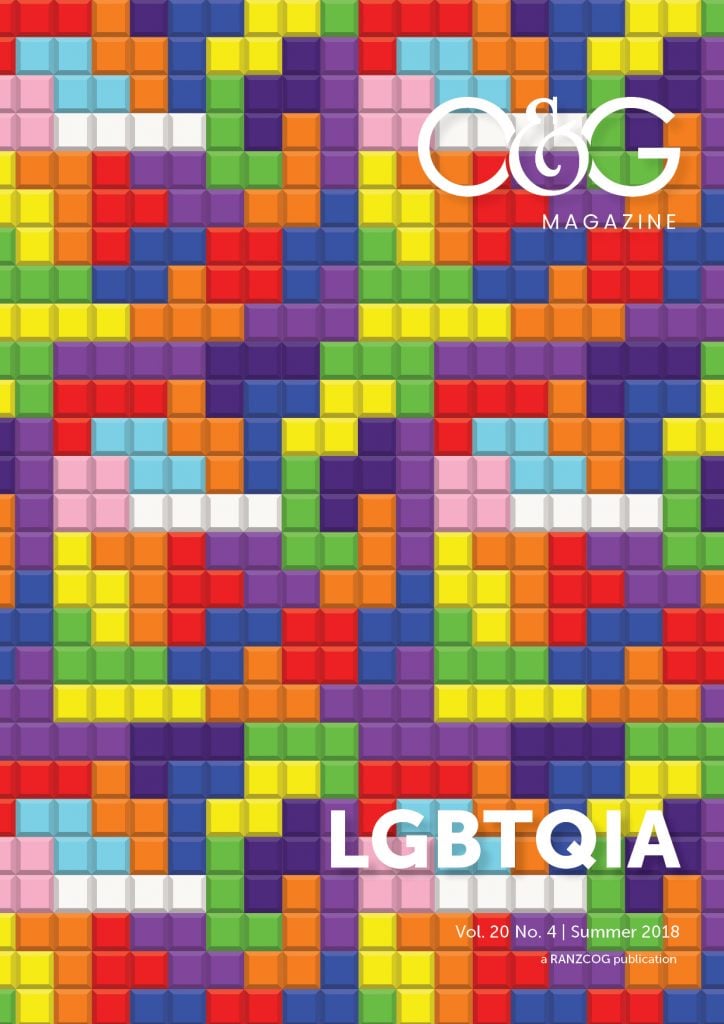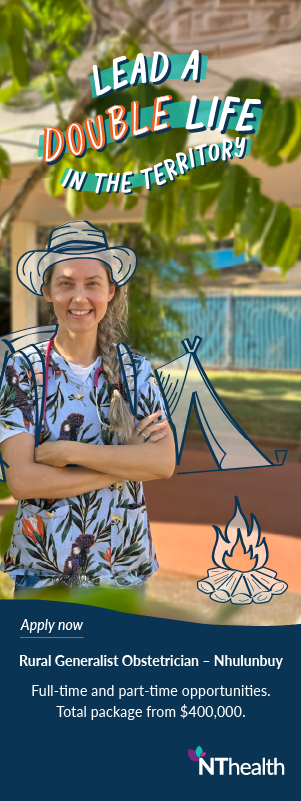This issue of O&G Magazine addresses an important aspect of social, cultural and clinical life in Australia and New Zealand. Members of the LGBTI community have experienced a long history of marginalisation and discrimination, often to the detriment of their physical and mental healthcare.
While the College acknowledges a diversity of opinion in the community and among our members on many issues, on one thing we are united: RANZCOG believes that every person, independent of their sexual orientation, has the right to high-quality medical care. In 2017, the RANZCOG Board issued a statement on same-sex marriage which read, in part ‘… the Board affirms its support for marriage equality and calls upon the Australian Parliament to ensure equal opportunity for lesbian, gay, bisexual, transgender and intersex (LGBTI) Australians in same-sex relationships and their families …’ I was proud to be a member of that Board and grateful to then-President Prof Steve Robson for his leadership. In this issue, the O&G Magazine editors have assembled a diverse series of articles relevant to the care of the LGBTI community. It is compelling reading and relevant to everyone’s practice.
This is my first opportunity to address the College community in O&G Magazine. I want to start by acknowledging Immediate-Past President Prof Steve Robson and thanking him for his stewardship of the College. During his tenure, Steve navigated complex issues, such as out-of-pocket costs, vaginal mesh and the increasing pressure on private practice. He convened the National Women’s Health Summit 2018, bringing together leaders, clinicians, consumers and politicians to discuss a broad range of issues relevant to Australian women’s health. Steve demonstrated extraordinary commitment to the College, despite a significant clinical load in Canberra and a young family. He will continue in many roles, including Chair of the Engagement Committee and Chair of the Local Organising Committee for the International Federation of Gynecology and Obstetrics (FIGO), Sydney, 2021.
My nomination for President of the College generated responses ranging from ‘Good on you’ to ‘That’s brave!’ Since starting training in 1991, the College has been a constant in my personal and professional life. I cherish the relationships formed with College staff, other Councillors, trainees and the wider Fellowship. I am a rusted-on RANZCOG Fellow. I am proud of my profession and our service to women and the community. I take heed that our College represents two countries, working together with common goals and mutual respect.
Leadership of the College provides the opportunity to build upon the progress and achievements of previous presidents, boards and councils in education, public relations, setting and improving standards, and establishing the College as the voice for women and their families in Australia and New Zealand. There is rarely a need for radical change, but leaders must be prepared to challenge existing paradigms, both internal and external. While leaders need to be confident, this should always be underpinned by humility.
RANZCOG has a place in a contemporary world. Navigating change is difficult and often confronting. We need to address internal issues of an ageing College House, development of a more effective governance structure and, critically, genuine, sustained engagement of our members. Representation of women in senior roles in the College is discordant with the number of members and changing this paradigm will be a key priority. We will continue to negotiate the difficult issues of vaginal mesh and other devices; private insurance rebates; declining private practice opportunities; the impending burden (or, maybe, opportunity) of revalidation; regulation of fees; and the overall reduction in surgical procedures, both for trainees and consultants. In obstetrics, arguably the greatest risk lies with new genetic screening tests, as clinical and ethical practice plays catch up with commercial accessibility.
We also need to engage effectively with external stakeholders, including government and allied practitioners, especially midwives, the National Association of Specialist Obstetricians and Gynaecologists (NASOG), the Australasian Gynaecological Endoscopy and Surgery Society (AGES) and the Urogynaecological Society of Australasia (UGSA). RANZCOG must retain its commitment to Aboriginal, Torres Strait Islander and Maori people and those in the Pacific. There are also opportunities beyond our shores. We should build on the strong, established relationships with the UK, Canada and the US, while exploring new horizons in Asia and Europe.
In this issue of O&G Magazine, Sarah van der Wal’s story articulates beautifully that love underpins so much of the human experience. She also raises the important issue of ‘othering’, a burden for those who sit outside established social norms. There was a time when gender, race, colour, religion or sexuality precluded a person from professions, social engagement, relationships and parenting. I want to be part of a different community, one that not only respects diversity, but values and embraces it.
Whatever my role, I want my College to be compassionate, representative and inclusive. RANZCOG is your College. Let’s foster a sense of belonging and meaning for all of our members. The Board and Councillors are your elected representatives. It is our responsibility to work with College staff to deliver services to the membership and we want to hear from you.
I am honoured to commence my role as President of RANZCOG. I look forward to the next three years, to meeting you and working with you. Let’s approach the next Council together, with purpose and determination, cementing the reputation of RANZCOG as synonymous with excellence in women’s health in Australia and New Zealand.






Leave a Reply